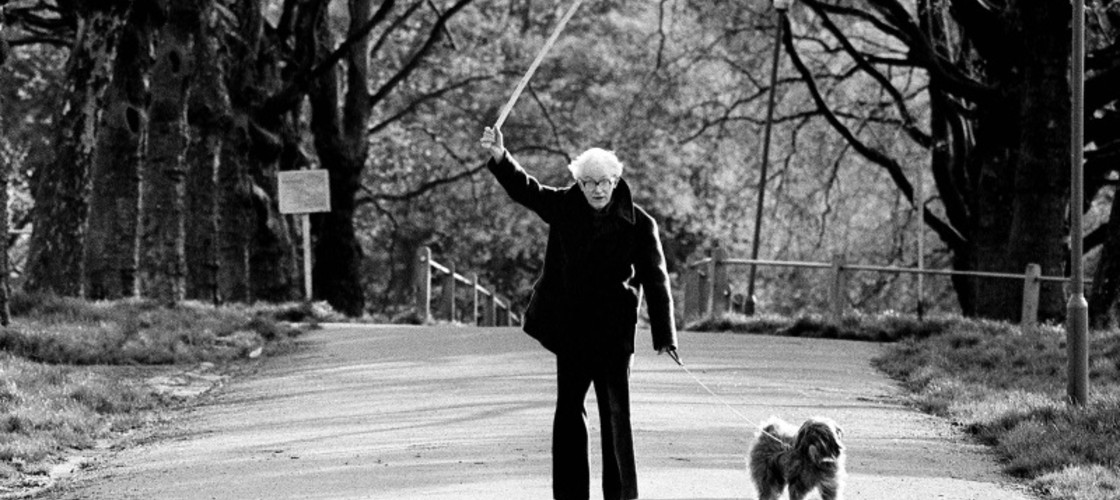
The early hours, 25th March 1983
“Balls!”
Michael Foot let his go-to word for these kind of situations reverberate through the dark rooms of his north London town house. Almost simultaneously, he threw his dog-eared copy of H.G. Wells at the television screen, with all his anger, frustration and strength, yet still doing little to alter what was being broadcast, in all its grainy technicolour.
Darlington had been lost.
Vincent Hanna was to blame, of course. Having been off with a bloody flu for the last few weeks, some tea boy had filled in, giving an easy ride to all the candidates, which was good for Ossie, but left the good people of Darlington with the silly impression that that bloody Cook had at least half a brain-cell! Foot couldn’t stand the sight of him, the light-weight soggy bastard was on the telly now, smiling away. He’d come third, but only just. The damage had been done none the less, the anti-Tory vote was split, and Michael bloody Fallon had come straight up the middle.
This had been something of a last chance saloon for Foot for some time. Rumblings in the PLP about a “fresh start” in the lead up to the election had been growing, and he couldn’t exactly blame them for it. He was getting tired of the job, not that he’d exactly wanted it in the first place. Benn and Healey tearing chunks out of each-other, the gang of four, the Falklands, it had all been a nightmare, and as each day went past the chance of election victory, the chance to get the country back on track, seemed to vanish further and further away from his grasp. Now his chances of even staying on as leader had all but evaporated. Neil, bless him, would stand up for him, but it was no good. The unions would be making arrangements by the morning, probably planning for Healey to take over in the meantime, or would they plan a quick leadership election? Christ, anything but that. Benn would no doubt already be whipping up support, and he had heard a lot of positive things about Neil from others.
What would happen to him now? Muddling on, he supposed. There would be more books to read and more books to write. He had missed the backbenches for some time.
He heaved a little as he leaned over to pick the book off the floor. By the time he got back to an upright position, which, to be frank, wasn’t exactly a quick manoeuvre for him anymore, the telephone started ringing.
Things were moving a lot quicker than he thought.
“Balls!”
Michael Foot let his go-to word for these kind of situations reverberate through the dark rooms of his north London town house. Almost simultaneously, he threw his dog-eared copy of H.G. Wells at the television screen, with all his anger, frustration and strength, yet still doing little to alter what was being broadcast, in all its grainy technicolour.
Darlington had been lost.
Vincent Hanna was to blame, of course. Having been off with a bloody flu for the last few weeks, some tea boy had filled in, giving an easy ride to all the candidates, which was good for Ossie, but left the good people of Darlington with the silly impression that that bloody Cook had at least half a brain-cell! Foot couldn’t stand the sight of him, the light-weight soggy bastard was on the telly now, smiling away. He’d come third, but only just. The damage had been done none the less, the anti-Tory vote was split, and Michael bloody Fallon had come straight up the middle.
This had been something of a last chance saloon for Foot for some time. Rumblings in the PLP about a “fresh start” in the lead up to the election had been growing, and he couldn’t exactly blame them for it. He was getting tired of the job, not that he’d exactly wanted it in the first place. Benn and Healey tearing chunks out of each-other, the gang of four, the Falklands, it had all been a nightmare, and as each day went past the chance of election victory, the chance to get the country back on track, seemed to vanish further and further away from his grasp. Now his chances of even staying on as leader had all but evaporated. Neil, bless him, would stand up for him, but it was no good. The unions would be making arrangements by the morning, probably planning for Healey to take over in the meantime, or would they plan a quick leadership election? Christ, anything but that. Benn would no doubt already be whipping up support, and he had heard a lot of positive things about Neil from others.
What would happen to him now? Muddling on, he supposed. There would be more books to read and more books to write. He had missed the backbenches for some time.
He heaved a little as he leaned over to pick the book off the floor. By the time he got back to an upright position, which, to be frank, wasn’t exactly a quick manoeuvre for him anymore, the telephone started ringing.
Things were moving a lot quicker than he thought.
